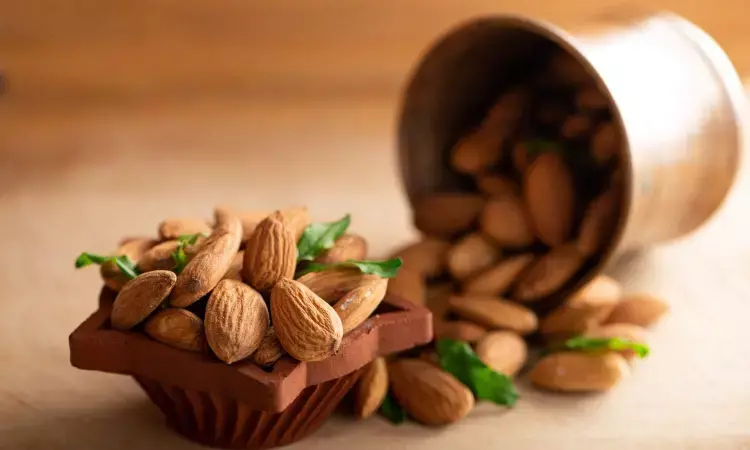- Home
- Medical news & Guidelines
- Anesthesiology
- Cardiology and CTVS
- Critical Care
- Dentistry
- Dermatology
- Diabetes and Endocrinology
- ENT
- Gastroenterology
- Medicine
- Nephrology
- Neurology
- Obstretics-Gynaecology
- Oncology
- Ophthalmology
- Orthopaedics
- Pediatrics-Neonatology
- Psychiatry
- Pulmonology
- Radiology
- Surgery
- Urology
- Laboratory Medicine
- Diet
- Nursing
- Paramedical
- Physiotherapy
- Health news
- Fact Check
- Bone Health Fact Check
- Brain Health Fact Check
- Cancer Related Fact Check
- Child Care Fact Check
- Dental and oral health fact check
- Diabetes and metabolic health fact check
- Diet and Nutrition Fact Check
- Eye and ENT Care Fact Check
- Fitness fact check
- Gut health fact check
- Heart health fact check
- Kidney health fact check
- Medical education fact check
- Men's health fact check
- Respiratory fact check
- Skin and hair care fact check
- Vaccine and Immunization fact check
- Women's health fact check
- AYUSH
- State News
- Andaman and Nicobar Islands
- Andhra Pradesh
- Arunachal Pradesh
- Assam
- Bihar
- Chandigarh
- Chattisgarh
- Dadra and Nagar Haveli
- Daman and Diu
- Delhi
- Goa
- Gujarat
- Haryana
- Himachal Pradesh
- Jammu & Kashmir
- Jharkhand
- Karnataka
- Kerala
- Ladakh
- Lakshadweep
- Madhya Pradesh
- Maharashtra
- Manipur
- Meghalaya
- Mizoram
- Nagaland
- Odisha
- Puducherry
- Punjab
- Rajasthan
- Sikkim
- Tamil Nadu
- Telangana
- Tripura
- Uttar Pradesh
- Uttrakhand
- West Bengal
- Medical Education
- Industry
Increased Dried Fruit Intake May Improve Kidney Function Markers, finds study

Researchers have established that a higher intake of dried fruit was associated with improved markers of kidney function, and effects appeared to be greatest in nonsmokers and nondrinkers. A recent study was published in Frontiers in Nutrition journal conducted by Gao Y. and colleagues. Intake of dried fruits has significant association with markers at lower levels like Blood Urea Nitrogen (BUN), creatinine (CR), uric acid (UA), and cystatin C (CyC) are indicative of good health concerning kidneys.
Millions of people worldwide suffer from chronic kidney disease. Lifestyle factors, including diet, are considered to be involved in the pathogenesis of the disease; however previous studies on dried fruit intake and the health of kidneys have been limited by confounders and bias. Using a technique known as Mendelian randomization (MR), this study aimed to clarify the causal relationship between dried fruit intake and markers of kidney function.
A two-sample MR approach was utilized by the researchers. They sought to investigate whether there was an association, and most importantly, a possible causal one between the consumption of dried fruit and six markers of kidney function that included BUN, creatinine, uric acid, cystatin C, hematuria, and microalbuminuria. Inverse variance weighting was the analytical approach most often used in estimating associations, while other methods-MR Egger and weighted median-were used as supplementary approaches to investigate result robustness. MVMR was conducted with adjustment for smoking and alcohol use to determine if the effect of dried fruit consumption on kidney function may be confounded by smoking and alcohol use.
Higher intake of dried fruit was significantly associated with a lower BUN level (β = -0.171, 95% CI: -0.239 to -0.102, p = 1.063 × 10⁻⁶).
Positive consumption of dried fruit was linked with lowering creatinine (β = -0.205, 95% CI: -0.311 to -0.099, p = 1.455 × 10⁻⁴).
In uric acid as well, a similar association was obtained with β = -0.317, 95% CI: -0.384 to -0.249, p = 4.439 × 10⁻²⁰, that is to say a greater consumption of dried fruits may be associated with the lowering effect of UA.
In increased cystatin C, decreased intake of dried fruits is observed with β = -0.323, 95% CI: -0.384 to -0.249, p = 1.074 × 10⁻¹¹.
No meaningful association between dried fruit consumption with hematuria or microalbuminuria, which are two of the most common used markers in examinations of renal health,
Intake of dried fruit was inversely related to UA and CyC levels, though the association became attenuated; still, it remained significant for both UA (β = -0.296, 95% CI: -0.523 to -0.068, p = 1.094 × 10⁻²) and CyC (β = -0.238, 95% CI: -0.465 to -0.011, p = 4.024 × 10⁻²).
For BUN and creatinine, the causal association completely disappeared in smokers and alcoholics (BUN: β = -0.038, 95% CI: -0.215 to 0.138, p = 6.698 × 10⁻¹; CR: β = -0.038, 95% CI: -0.431 to 0.046, p = 1.347 × 10⁻¹).
This study suggests that consumption of dried fruits may be an intervention that improves markers for kidney function in abstainers from smoking and alcohol. Dried fruit can, therefore, be added to a healthy diet for people at risk of kidney disease as a potential additive strategy for preserving renal health and delaying the onset of chronic kidney disease when smoking and alcohol are avoided.
Reference:
Gao Y, Yue X, Zhao W and Yuan F (2024) Association between dried fruit intake and kidney function: research from univariate and multivariate Mendelian randomized studies. Front. Nutr. 11:1440896. doi: 10.3389/fnut.2024.1440896
Dr Riya Dave has completed dentistry from Gujarat University in 2022. She is a dentist and accomplished medical and scientific writer known for her commitment to bridging the gap between clinical expertise and accessible healthcare information. She has been actively involved in writing blogs related to health and wellness.
Dr Kamal Kant Kohli-MBBS, DTCD- a chest specialist with more than 30 years of practice and a flair for writing clinical articles, Dr Kamal Kant Kohli joined Medical Dialogues as a Chief Editor of Medical News. Besides writing articles, as an editor, he proofreads and verifies all the medical content published on Medical Dialogues including those coming from journals, studies,medical conferences,guidelines etc. Email: drkohli@medicaldialogues.in. Contact no. 011-43720751


